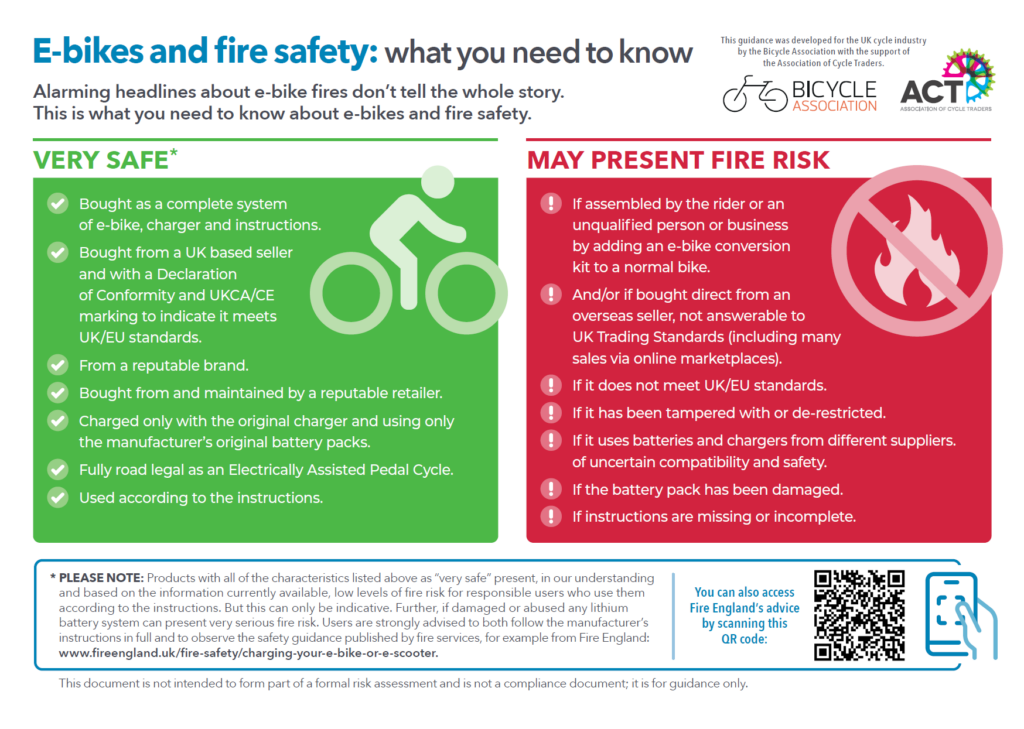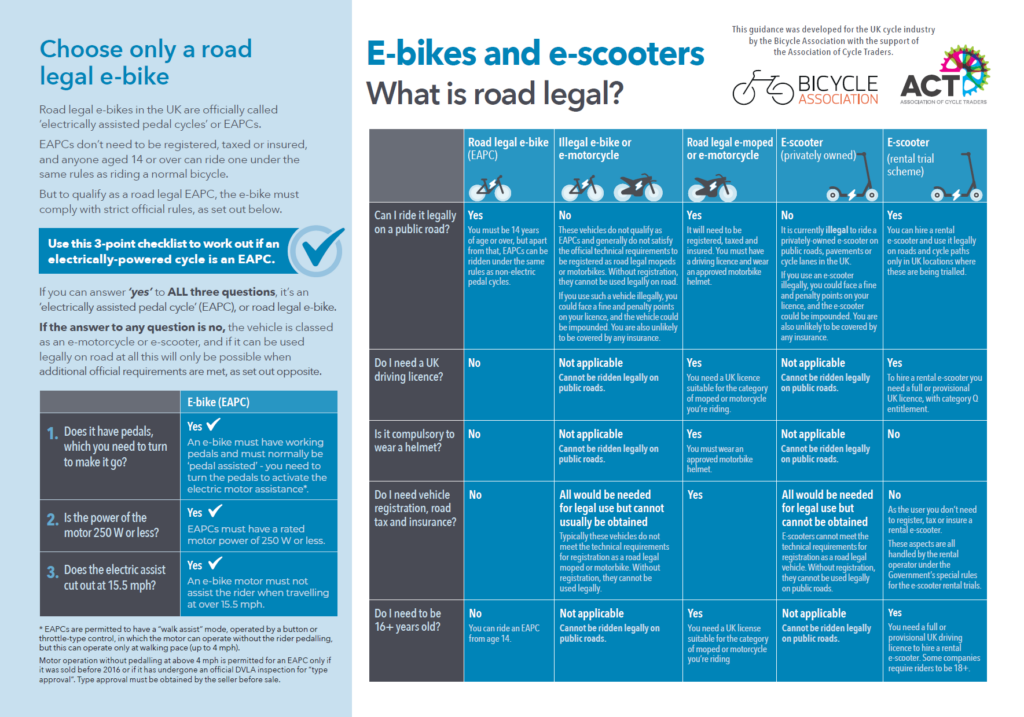BA and ACT respond to Electric Safety First’s e-bike legislation proposal
November 2, 2023
The Bicycle Association and the Association of Cycle Traders respond to Electrical Safety First e-bike proposal, and release industry guidance on lithium fires and road legal e-bikes
On behalf of the UK cycle industry, the Bicycle Association (BA) and the Association of Cycle Traders (ACT), have issued a joint response to the legislation proposed by Electrical Safety First (ESF) on e-bike fire safety – also using the opportunity to launch two guidance notes for the UK cycle industry.
The ESF proposal is for legislation which would require immediate mandatory third party approval of e-bikes and battery packs, among other aspects.
Peter Eland, Technical and Policy Director at the Bicycle Association, said:
“The Bicycle Association and all responsible companies in the UK cycle industry very much share Electrical Safety First’s urgent focus on public safety. We also share a wish that the Government acts with all possible speed to address the root causes of the recent rise in e-scooter and e-bike fires.
However, while introducing mandatory third party testing could definitely be part of the solution, it must run alongside much stricter enforcement of product safety for products supplied to UK consumers direct from overseas sellers, often via online marketplaces. This has been identified by the Fire and Rescue services as a key area of concern for these lithium fires. Regulatory action to boost e-bike safety must address these high risk imports.
London Fire Brigade has also identified the app-based food delivery sector as a key area of concern due to the widespread use of bicycles converted to e-bikes via e-bike conversion kits (often sourced from overseas via online marketplaces) or by modifying existing e-bikes, both high risk factors for fire safety. Any Bill aiming to meaningfully address fire risk must impose responsibility on food delivery app operators to ensure that the equipment used by their riders is safe.
The BA is ready to work with ESF on amendments to the proposed Bill to address these aspects.
The BA would also propose more practical arrangements for the mandatory approval of e-bikes and batteries. Responsible suppliers in the industry would readily satisfy the requirements for the proposed mandatory approval process, because they already have evidence of extensive product safety testing in place. But the ESF Bill proposes no transition period for the establishment of approval capability and for approvals of existing models to be granted. The consequence would be a sudden months-long halt in sales while even responsible suppliers waited for approvals.
We welcome the public awareness around e-bike fire safety that the ESF proposal is generating. However, the BA notes that the Government product safety regulator, the Office for Product Safety and Standards, is also presently working on this issue to develop official, evidence-based proposals for regulatory actions. The BA, on behalf of the responsible e-bike industry, is contributing positively to this work which will, we hope, address the root causes of battery fires with a comprehensive package of measures which will be swiftly implemented.”
The ESF proposal coincides with a joint BA and ACT industry initiative to boost industry and consumer awareness of the difference between e-bikes which are generally very safe, and those which may be at higher risk of fire. The cycle industry trade bodies have issued information sheets for the industry aiming to counter the often misleading media headlines.

The first guidance note summarises statements from fire services and industry experts to clarify the distinction between e-bikes from the reputable industry (which are generally very safe) as opposed to e-bikes, conversion kits, batteries and chargers which may pose significant fire hazard if certain risk factors are present, for example being sourced from overseas via online marketplaces.
Download the documents at
- https://www.bicycleassociation.org.uk/news-press/e-bike-guidance/ or
- https://cycleassociation.uk/e-bikes
Further joint industry initiatives are under development and will be announced shortly, say the two trade associations.
